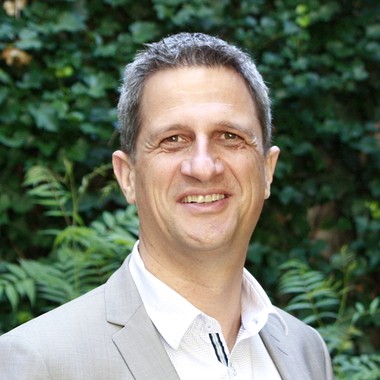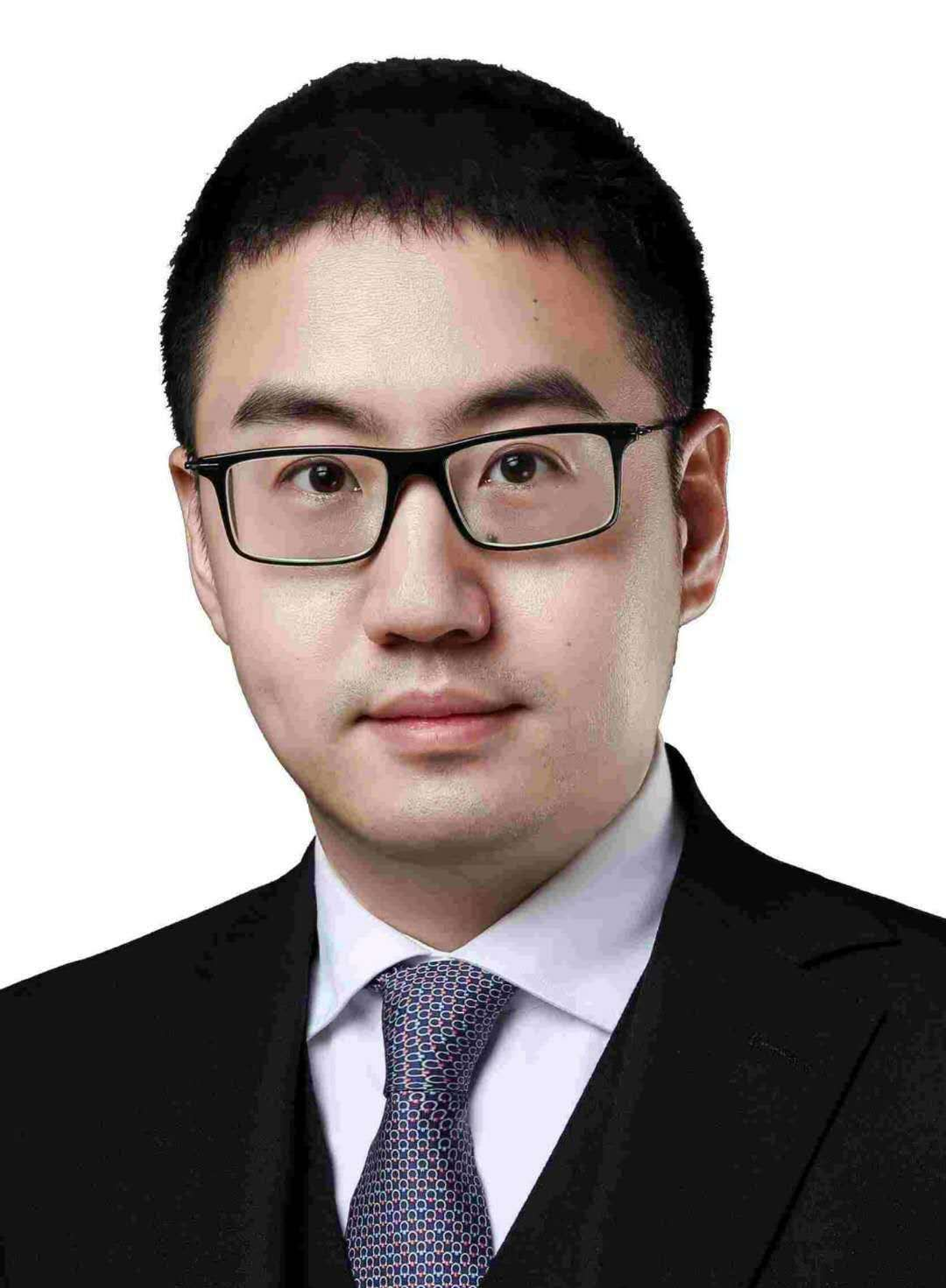Standards for Inclusion & ICT Readiness
Centre for Socio-Eco-Nomic Development
Session 319
Ensuring Inclusiveness and Connectivity for Older Persons
This session on “Standards for inclusive workplace & ICT readiness: Ensuring inclusiveness and connectivity” will address the question whether standards could be effective instruments to achieve and ensure fair treatment and equitable outcomes for older persons and/or all people.
By 2030, 1.4 billion or 16.5% of the total worldwide population will be older than 60 years of age and the majority of the older persons will reside in the developing countries, living with their families and sharing household duties. Here ICT and related AI technology could play an enabling role for the older persons to participate meaningfully in the family and community activities should certain basic conditions could be met.
However, in a 2020 report, Deloitte mentioned there are many concerns about AI-enabled technologies. The same sentiment is expressed in the discussions within the AI for Good Conferences. “AI Algorithms embedded in digital and social media technologies can reinforce societal biases, accelerate the spread of rumours and disinformation, amplify echo chambers of public opinion” (Guszcza, Ammanath & Kuder, 2020). A proposal was made to ensure algorithm fairness in the AI circles. However, what is “fair algorithm”?
The debate mostly centred on procedure fairness versus distributive fairness. The former emphasises fair treatment while the latter relates to equitable outcomes. How to prevent amplification of implicit societal biases concerning gender and age? How to avoid that algorithm biases leads to unfairness in hiring or lending decisions?
Being excluded from getting affordable and easy access to the digital services is impacting all age groups, especially older population and women. Yet, such deprivation is only the visible tip of the iceberg. The lack of hardware, such as PC, tablet, smart phones, or broadband infrastructure is readily observable however the exclusions that take place beneath the waterline is more insidious and harder to detect.
To benefit from digitalisation tends to be dependent on the mastery of daily use of APPs. Digital literacy, confidence and psychology of security, and minimum competencies in dealing with privacy and security of personal data are some of the entry points to incapacitate individual persons to participate in the digital world. There is also an emerging trend in questioning underlining principles and assumptions concerning algorithm that are used to construct AI and other decision-making support which could be a starting point to remedy some of the more fundamental reasons that disfavoured women or older persons.
Standardisation, as a soft regulatory instrument involving all stakeholders could be an interim intervention to deal with some of these less visible yet large impact issues. These issues either exclude the participation of the older persons in the information society or undermine their wellbeing by depriving them access to learning and other opportunities for retaining self-efficacy and positive self-image for as long as possible.
In this sense, ICT and related application standards could effectively contribute to the attainment of the goals laid down by the UN Decade of Healthy Ageing! This session will focus on the possible negative impact of digitalisation on the rights and wellbeing of older persons.

Initially trained as a counselling psychologist she later on worked in the fields of institutional learning and organisational transformation. After relocating to New York and a postdoctoral stay at Columbia University, she moved on to Geneva in the 1980’s. Lichia worked with different UN organisations in designing and developing institution development platforms to support public sector reforms in Asia, Eastern Europe, Russia, and English-speaking African countries for the UNDP, World Bank, WHO, ILO, EBRD and bilateral development aid agencies (SDC, GTZ, DANIDA, SIDA, NORAID, CIDA). She also conducted management training and OD projects for multinational companies in North America, Europe and Asia on cross-cultural leadership, talent system development, and international negotiations. Her more recent endeavour has concentrated on the promotion of 2030 Agenda for Sustainable Development and Age related issue concerning dignity, social and economic rights of the older persons and digital inclusion.
She was part of the ISO group that promotes ISO 10015 Quality Standards on Training and conducts audit in different parts of the world. Her recent engagement with the quality standards include ISO TC 314/Working Group on Ageing Workforce and a private standard on Service Quality Assessment Framework (SQAF, 2020)
She has published books and more than 80 articles in journals such as American Academy of Management Executive, Advances in International Comparative Management, Human Resource Quarterly, Performance Improvement Quarterly, Public Sector Management, and International Journal of Human Resource Management. Her current research interests are alternative modes of organising work, sustainable employability, human capital formation and business diplomacy for sustainable partnership.
Her newest book co-authored with Raymond Saner, Roland Bardy and Arthur Ruben, is titled “Public Goods, Sustainable development and the Contributions of Business” (2021)

AAL LegacyAAL is an international public-public partnership of national and regional Health, Innovation & Research Ministries/Funding Agencies from 19 countries (mainly in Europe plus North America and Asia). This support programme focuses on active & healthy ageing with support of digital-based solutions. As the director, Mr Klaus Niederland leads the effort in promoting cross-border partnerships in innovation of digital based solutions.
Mr Klaus Niederlander has 25 years of work experience in dealing with socio-economic transformation issues, such as SME development in Sub-Saharan Africa or the spreading of cooperative enterprise models in various sectors in Europe, e.g. for locally owned renewable energy production, healthcare and education. Since 2016 his work focuses on demographic change challenges and opportunities through ageing well based on autonomy, self-help and solidarity.
With a double bachelor’s degree in European Business in Germany and the UK and a master’s degree in European Economics from the College of Europe in Belgium, Mr. Niederlander started his professional career in 1995 in investment banking and in management consulting for the pharmaceutical/chemical /logistics industry as well as for city development. When moving to Brussels in 2002, he joined an EU-ACP agency for private sector development as programme manager before becoming Director of Cooperatives Europe, the pan-European cooperative enterprise association. He eventually was appointed Director of the AAL Association in 2017.
Sabrina Pit has been working in the education, research and health sector for over 20 years. She was the Stream Leader of Workforce Research Stream and Lead Academic, Clinic & Educational Research at the Rural Clinic School for Western Sydney University and University of Sydney. She has published widely on health, work and ageing.
In 2020, she was appointed as the Chair of Standards Australia Societies's Mirror Board. She is the convenor of the ISO Working Group Ageing Workforce. She is also a member of the ISO/TC260 Technical Committees Human Resource Management and TC 268 - Sustainable cities and communities.

Prof Yifan Yang, Executive Director of the National Interdisciplinary Institute on Ageing (NIIA) and Prof at the School of Public Affairs and Law, Southwest Jiaotong University. Hosted the 2018 National Social Science Fund Project General Project “Global Research on Ageing Governance and Building Age-Friendly Cities”, 2018.6-2020.12, ¥200,000 in process .He take multiple social work such as the follows: China Quality Certification Center CQC Modern Service Industry Evaluation and Operation Center Chief Expert of Health and Wellness Service; Vice President of Sichuan Gerontology Society; Director and Researcher of the Office of Ageing and Industrial Development Research Center of Sichuan Provincial Key Research Base of Philosophy and Social Sciences; Chinese Society Member of the Youth Committee of the Institute of Safeguards, member of the Young Scholars Alliance of the China Social Security 30 Forum; Director of the China Consumer Economics Association, Director of the Sichuan Consumer Research Association, Director of the European Association of Professional Pension Research (ENRSP), Forum of 50 Chinese Pension Fund Invited Researcher; National Natural Science Foundation Communications Reviewer; Member of the Sichuan Provincial Policy and Regulation Gender Equality Advisory Committee; Member of the Asian Public Administration Society (AAPA), Overseas Professor of Meiji University, Japan, Visiting researcher of Yonsei University, Japan University of Policy Studies Visiting Fellow, Co-Director of the International Institute of Administrative Sciences (IIAS) “Sustainable Ageing Governance” Project; Anonymous Reviewers of International English Journals such as Poverty Reduction and Regional Development, Asian Public Administration Review, and other social work.
Co-Chair of IIAS Study Group on Governance of Ageing Society. An Analytical Framework for Narrowing the Digital Divide among the Elderly. Scientific Research on Aging 2019 (10): 58-67.
Raymond Saner is Titular Professor at Basle University, Department of Economics and Management, Switzerland since 2002 and teaches at Lüneburg University in Germany, Centre for Sustainability (CSM) and is jury member of Doctoral Ph.D. Committees.
His research focuses on sustainable development (UNDESA), trade and development (UNCTAD/WTO), employment and poverty reduction (ILO, UNRISD), education (OECD, WTO/GATS), investment and climate change (UNCTAD, UNFCCC), and PPPs in the health and social sector (UNECE/WHO). He was member of expert groups drafting the Global Sustainable Development Report.
Raymond Saner co-founded CSEND (1993), an ECOSOC accredited research organisation. He co-chairs the academic network of the OECD Guidelines on Business and Human Rights, is member of the UN Task Force on Solidarity and Social Enterprises and expert in CSR quality standards.
He (co)-authored 21 books and 25 referred journal articles. He served on the executive board of Academy of Management’s Organisation Development & Change division and chaired its Advisory Council for the Board of Governors
-
 C3. Access to information and knowledge
C3. Access to information and knowledge
-
 C10. Ethical dimensions of the Information Society
C10. Ethical dimensions of the Information Society
ICTs have the extraordinary potential to respond to the demands of demographic shifts and to meet the challenges of a shrinking workforce, and of rising healthcare provisions and increasing need for caregiving for older persons. Artificial Intelligence, Big Data, drones and robotics and other game-changing technologies have already being harnessed to make the lives of older persons better, provided the underlying algorithms are age sensitive and accountable.
What other ethical considerations need to take place in dealing with the ageing population who are not internet native, nor adopters. What could be the protective measures to be put in place, if not through procedural transparency and due diligence? These are the ethical dimensions to be explored during the session.
-
 Goal 3: Ensure healthy lives and promote well-being for all
Goal 3: Ensure healthy lives and promote well-being for all
-
 Goal 10: Reduce inequality within and among countries
Goal 10: Reduce inequality within and among countries
-
 Goal 16: Promote just, peaceful and inclusive societies
Goal 16: Promote just, peaceful and inclusive societies
Contributing to SDG 3 good health and wellbeing for all
ICT and related technologies as enablers for development could contribute greatly to the wellbeing of these older persons especially evident today due to the disruptive impact of the COVID-19 pandemic. Deeper societal integration of older persons is needed through digitalisation by e.g., providing information, public services especially public health or education, financial transactions for social security payments, and e-commerce. However. The lack of digital literacy and at times affordable access to ICT services in so many countries shows how deep the digital divide is for large proportion of the world’s population.
Ensuring the inclusiveness and connectivity of older persons will contribute to their capabilities in lifelong learning, participation in social, cultural and economic activities. Most of all will enforce their sense of agency, autonomy and purposefulness in the later stages of their life course.
Contributing to SDG 10, reducing inequality within and between nations
ICT has empowered individual anywhere to access the state of the art science, trends and up to date knowledge if they have access to global connectivity. Standards promote efficient use of resources, in terms of memory space and bandwidth etc., so that individuals could connect with the internet with less technical capabilities. On a Meta level, standards could potentially prevent unintentional discrimination and unfair outcomes.






